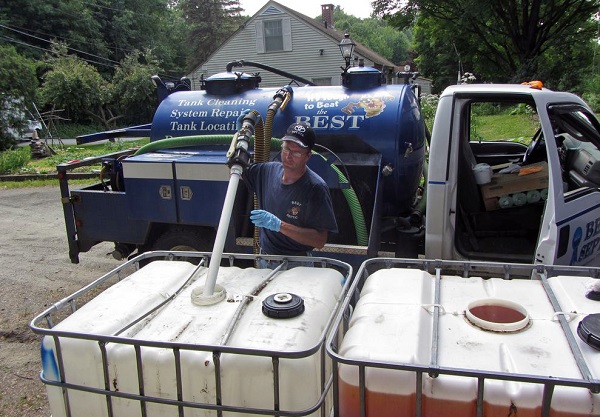
Many of you may turn your heads and decide this is gross but the benefits of using human urine to create fertilizers is astounding. Not only does recycling human waste work efficiently but the environmental benefits alone should be plenty to convince you to start being mindful of new re-cycling methods
Let’s face it, we as a human race use up a lot of resources yet rarely do we actually put back into the Earth what we use. So what you end up with is an incredible amount of trash and disposables that could have been re-used in a variety of manners. For example your human waste, although not an often re-used matter, science is repeatedly proving that what we consider waste can actually feed the Earth. Yes, you heard me right, your urine can be your flower gardens next Thanksgiving meal (literally).
What scientists have found is that human urine primarily contains nitrogen and phosphorous, which can usually be harmful to the environment when too much of the nutrients end up in rivers and oceans. Nitrogen and phosphorous are two essential nutrients in allowing plants to grow and blossom. That’s reason why you find so many algae blooms in city rivers is because the city usually dumps your waste water into those rivers which in turn, algae find the nitrogen and phosphorous and begin eating it up until nothing is left.
In Washington, DC Waters Blue Plains Wastewater Treatment facility is where your waste water goes through several pools, is boiled, stirred, then fed to algae and dumped back into the Potomac River. That is one example of what millions upon millions of water treatment facilities are doing across the world right now with your waste water.
So when the up and coming environmental company, Rich Earth Institute realized that all of this human waste was literally going to waste they sat down, put their heads together, and thought of a new way to make better use of all the “pee”. By separating our urine before it gets to the waste water plant, Rich Earth was able to transform our human waste into a new and incredibly efficient plant fertilizer.
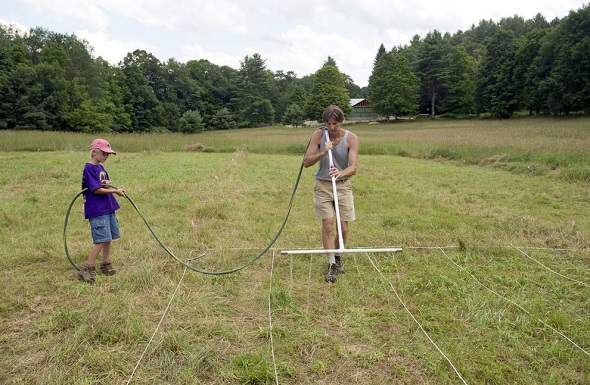
The process is actually far more simple than you may think, what Rich Earth does is it collects urine from several clients and friends then they store the urine for up to nine months. What this time allows for is the creation of crystals that contain the majority of the human urine’s nutrients like potassium, phosphorous, and nitrogen. Eventually these crystals begin to add up, constantly being collected as human waste is accrued. Then finally the crystals are dried up and then turned into a white powder called struvite. This struvite is poured on your flowers and other plants which all require nitrogen and phosphorus to grow.
Rich Earth has been so successful in the past few years of operating and transforming waste into food that the U.S. government has taken notice. Rich Earth has received grants from the United States Department of Agriculture (USDA) and the Environmental Protection Agency (EPA) to continue their efforts and research into recycling human waste. This is extremely promising because of the amount of energy and material used on separating pee from the rest of human waste in water treatment facilities across the world.
Think about it, there is a lot of energy that goes into separating urine when it gets to the water treatment facility. Not only that but then we have to worry about urine in our drinking water which is great for plants but not so much for the human body. As co-founder Abraham Noe-Hays of Rich Earth puts it ever so simply, “If you can keep the urine out of the wastewater, you don’t have to waste the resources in removing the urine downstream,”
Rich Earth isn’t the only ingenious company working on recycling human urine, it’s currently being done in Amsterdam as well. Amsterdam’s water utility, Waternet has recently begun a campaign to raise awareness of the capability of feeding our plants with pee. They began set-ting up public bathrooms, retro-fitted with special plumbing so that urine is automatically re-moved from human solid waste. The urine goes through a similar process of ultimately ending up as a powder than can be used to feed the thousands of Amsterdam homes with gardens on their roofs.
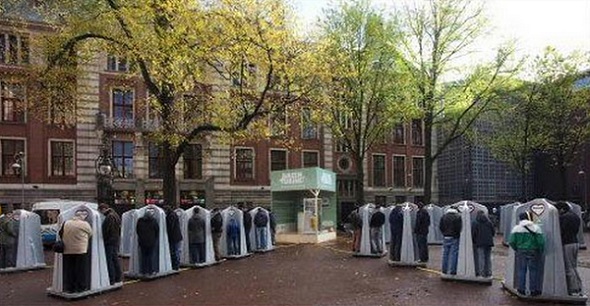
National Geographic explorer and soil scientist, Sasha Kramer has been helping the impoverished country of Haiti through similar efforts. Since the horrible earthquake that devastated Haiti and brought it to its knees, Sasha has been attempting to set up composting toilets all around Haiti. The idea is to have restrooms that create fertilizer which the Haitians can immediately turn around and use it to grow their own food. Providing much-needed food for the millions of hungry and despairing Haitians.
Lets hope that Rich Earth, Sasha Kramer, and Waternet all set a precedent for the rest of the world to sit back and watch. The way of the future is self-sustainability and everyone who doesn’t jump on this bandwagon will be left in the dark, figuratively and literally. Next time you’re thinking about how much you have to pee, just remember that you can be nourishing a garden of Eden with all that waste.
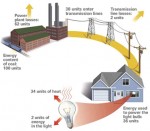 Where 98% of Energy Vanishes Before it Reaches Your Light Bulb?
Where 98% of Energy Vanishes Before it Reaches Your Light Bulb? DIY Sustainable Landscaping on a Shoe-string Budget?
DIY Sustainable Landscaping on a Shoe-string Budget?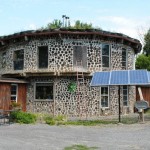 One Man’s Trash…is Another Scrounger’s House (if You Know How to Live)
One Man’s Trash…is Another Scrounger’s House (if You Know How to Live)
Check out the book, Liquid Gold: The Lore & Logic of Using Urine to Grow Plants at http://www.ecovita.net!